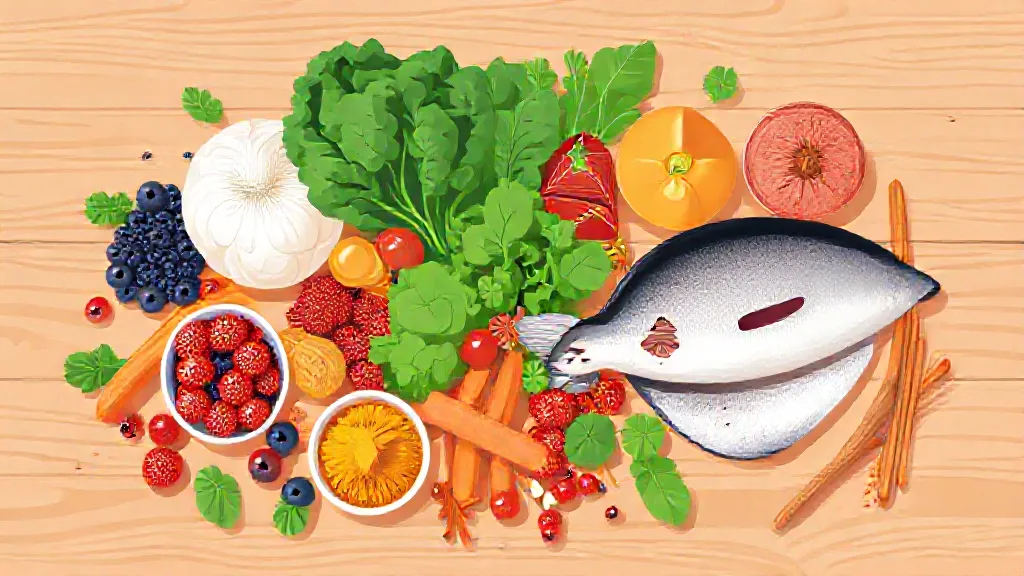Inflammation is a natural response of the immune system to injury or infection, but chronic inflammation can lead to various health issues, including heart disease, diabetes, and autoimmune disorders. Understanding which foods possess anti-inflammatory properties can empower individuals to make healthier dietary choices. This article delves into the science behind anti-inflammatory foods, their nutritional components, and how they contribute to reducing inflammation in the body.
The Science Behind Inflammation
Inflammation occurs when the body recognizes harmful stimuli, such as pathogens or damaged cells. It triggers an immune response, leading to the release of inflammatory markers like cytokines and prostaglandins. While acute inflammation is beneficial for healing, persistent inflammation can wreak havoc on the body, leading to chronic diseases.
The foods we consume can either exacerbate or alleviate this inflammatory process, making dietary choices crucial in managing inflammation.
Key Nutrients with Anti-Inflammatory Properties
Certain nutrients are recognized for their anti-inflammatory effects. Omega-3 fatty acids, found in fatty fish like salmon and walnuts, are known to inhibit the production of inflammatory substances.
Antioxidants, such as vitamins C and E, combat oxidative stress, which is linked to inflammation. Additionally, polyphenols, abundant in fruits, vegetables, and spices like turmeric, have been shown to modulate inflammatory pathways in the body, making them essential components of an anti-inflammatory diet.
The Role of Fruits and Vegetables
Fruits and vegetables are at the forefront of anti-inflammatory foods.
Berries, such as blueberries and strawberries, are rich in antioxidants and phytochemicals that help reduce inflammation. Leafy greens like spinach and kale are packed with vitamins and minerals that support immune function. Cruciferous vegetables, including broccoli and Brussels sprouts, contain sulforaphane, a compound that has shown promise in reducing inflammation and protecting against chronic diseases.
Spices: Nature's Anti-Inflammatory Agents
Spices are not only flavor enhancers but also potent anti-inflammatory agents. Turmeric, containing curcumin, has been extensively studied for its anti-inflammatory properties. Research indicates that curcumin can inhibit various inflammatory pathways, making turmeric a staple in many anti-inflammatory diets.
Other spices like ginger, cinnamon, and garlic also possess anti-inflammatory properties, making them excellent additions to meals for both flavor and health benefits.
Whole Grains and Healthy Fats
Incorporating whole grains into the diet can also help reduce inflammation. Whole grains like quinoa, brown rice, and oats are high in fiber, which supports gut health and may lower inflammatory markers.
Additionally, healthy fats from sources like olive oil and avocados provide monounsaturated fats that are beneficial for heart health and can help reduce inflammation. These fats are essential in promoting a balanced diet that fosters overall well-being.
The Impact of Processed Foods
Conversely, processed foods, high in refined sugars and unhealthy fats, can contribute to inflammation.
Diets rich in trans fats, added sugars, and artificial additives can trigger inflammatory responses in the body. Understanding the negative impact of these foods is crucial for individuals seeking to manage their inflammation levels. Reducing the intake of processed foods while focusing on whole, nutrient-dense options can significantly improve health outcomes.
Lifestyle Factors and Inflammation
While diet plays a critical role in inflammation, lifestyle factors such as stress, sleep, and physical activity also influence inflammatory responses. Chronic stress can elevate cortisol levels, leading to increased inflammation. Regular physical activity has been shown to reduce inflammatory markers and improve overall health.
Prioritizing sleep is equally essential, as inadequate rest can exacerbate inflammation. A holistic approach that combines a healthy diet with positive lifestyle choices is vital for managing inflammation effectively.
Conclusion: Embracing an Anti-Inflammatory Diet
In conclusion, understanding the foods that possess anti-inflammatory properties is essential for promoting health and preventing chronic diseases.
Incorporating a variety of fruits, vegetables, whole grains, healthy fats, and spices into the diet can create a powerful defense against inflammation. By making informed dietary choices and adopting a holistic lifestyle, individuals can significantly improve their health and well-being, paving the way for a healthier future.
